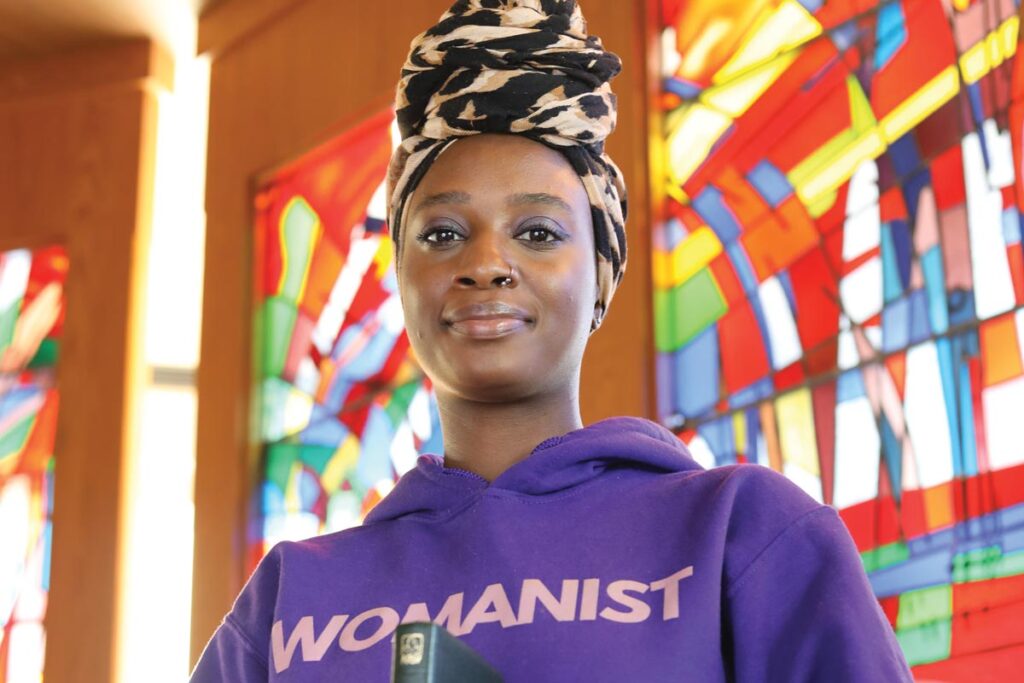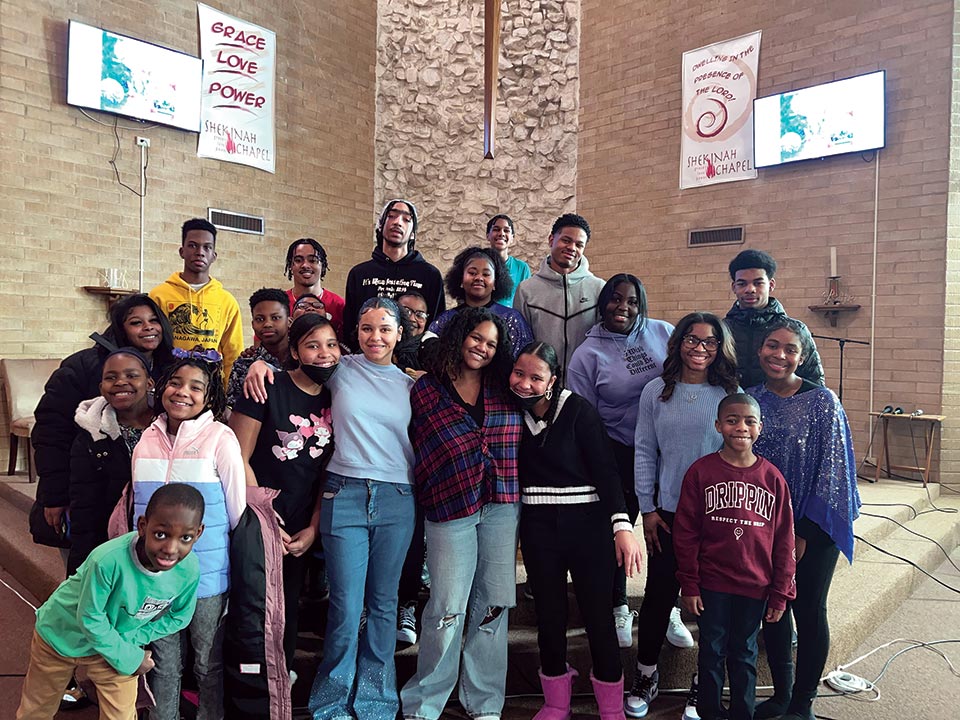MDiv Student Shemiah Curry Answers the Call

Shemiah Curry’s journey to becoming a seminarian was not something she actively sought, but a calling she couldn’t ignore. While working as a teacher in North Carolina, she reconnected with her undergraduate Bible study ministry, which had transitioned into a young adult ministry.
When the pastor leading this group sought someone to take over Bible study, Curry and her close friend were called upon for the task. Rather than shock, Curry felt a profound sense of confirmation. She had been praying and fasting, seeking guidance for her own life. It was as if this opportunity was a divine sign, aligning with her spiritual journey. This invitation marked the beginning of her path to ministry.
As she crafted her messages and teachings for young adult ministry, she began questioning her understanding of the Bible and whether her interpretations aligned with God’s intentions. These doubts led her to seek further education and instruction to strengthen her ministry.
In January 2021, during a period of prayer and fasting, she received a clear calling from God: she was to attend seminary and become a minister. This revelation solidified her path and propelled her toward her purpose in ministry.
“I think the Black Lutheran preacher is trying to encourage and build and motivate their audiences, especially in Chicago when it comes to preaching in communities that deal with violence, abuse, and
Shemiah Curry
the multitude of issues black people experience.”
Growing Up Black and Lutheran
Curry grew up as a pastor’s kid at Shekinah Chapel in Riverdale, Illinois, which was where her faith experience was shaped. As the oldest daughter of LSTC alum Bishop Yehiel Curry and First Lady LaShonda Hicks- Curry, she was acutely aware of the sacrifices and responsibilities that came with being in ministry, including the responsibility of caring for an extended church family.
For years, Curry watched both of her parents pour themselves into ministry. In particular, she watched her mother nurture the spiritual gifts of women in the congregation and support her father in his ministry. Curry attributes her gift of pastoral storytelling in her preaching style to her father and the gift of intercession to her mother.
Reflecting on her experience growing up in the church, Curry fondly recalls the Black Lutheran church experience as “unique and joyful,” defying the conventional perception of church life.
For starters, Sunday service at Shekinah Chapel began at 5 p.m. It was a lively place where young families gathered with their children—the evening start time allowed Curry and her friends to embark on adventures before church. They would spend mornings at the mall and visiting friends.
Sunday night, however, was dedicated to worship. Poetry and praise dance were interwoven into the fabric of church services, creating a unique sense of spiritual engagement. The atmosphere was charged with powerful sermons and singing that moved people to their feet, into the aisles, and sometimes even to the altar, where congregants would stand or kneel with their hands raised in a sign of surrender to God. The church started small, but its pews eventually overflowed because of the powerful preaching and worship experience.
This is where Curry felt at home and where she first fell in love with God. What she loves most about her Black Lutheran church identity is how it draws African spirituality, modern music, and freedom of expression into the worship experience.
As Curry’s church community expanded and evolved, it ventured into new territories. Leadership Lab, a summer camp where Lutheran children from Illinois gathered, became a significant part of her high school years. It even connected her with children from Atlanta, forging lasting friendships and bridging gaps between different church communities.

Women in Leadership
Now, as a third-year MDiv student at LSTC, Curry’s theology is deeply rooted in Womanist Theology, a form of reflection that places the religious and moral perspectives of Black women at the center of its method. Through this lens, issues of class, gender (including sex, sexism, sexuality, and sexual exploitation), and race are seen as theological problems.
For Curry, the core of her ministry is to create an oasis where everyone can experience the presence of God without fear or shame. In this spiritual haven, she envisions a church filled with vibrant praise and worship through music and instrumental sessions. She also dreams of creating a tiny house community for the unhoused, offering reduced-cost housing and providing activities tailored to seniors, including fitness classes and social gatherings.
Furthermore, Curry envisions her church adopting a local school, ensuring that the surrounding community knows they are loved and supported through prayers and tangible assistance, such as providing snacks for teachers or organizing back-to-school events.
Curry carries a profound belief that God shows up in the image of every individual. She embraces a theology rooted in inclusivity and liberation, emphasizing that no one should be placed on a pedestal or excluded from the love and acceptance of God. While her theology centers on Black women, it also extends to the well-being and liberation of all who face oppression.
“I think Black Lutherans preach differently than white Lutherans. Black preachers bring their cultural experience and their traditions, and it is my observation that we have more at stake,” said Curry. “I think the Black Lutheran preacher is trying to encourage and build and motivate their audiences, especially in Chicago when it comes to preaching in communities that deal with violence, abuse and the multitude of issues Black people experience.”
She believes that all people, regardless of their background, are made in the image of God and should be represented in a way that reflects their inherent value and holiness.
Regarding the structure of her church, Curry believes that while outreach efforts are essential, maintaining the routine of Sunday worship holds significance for many. She sees the power in structure and routine. “It can be comforting,” Curry said. “Routine helps individuals stay balanced and connected to their faith community.”
In considering the journey ahead, Curry understands the challenges she will face, especially regarding societal expectations and questions about her role in relationships. However, she is determined to pursue a path that allows her to fulfill her calling to minister to Black women and all women without compromise.